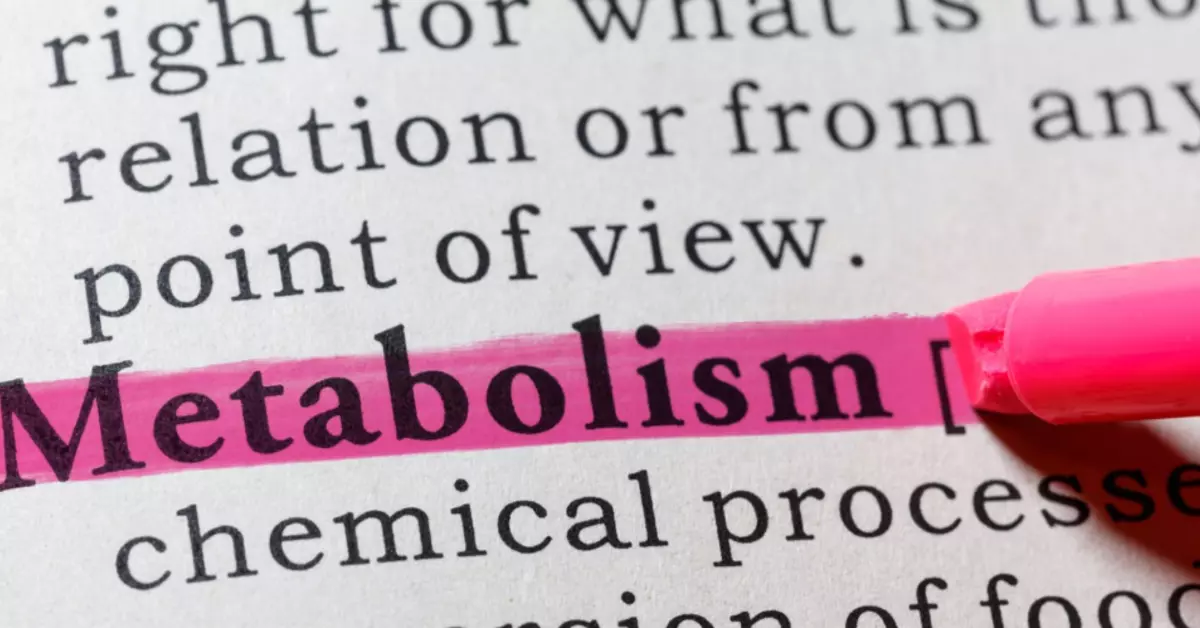Introduction: The Blame Game
In the realm of weight loss, the blame often falls on the shoulders of two culprits: slow metabolism and ineffective fat burning. Many individuals grappling with obesity and excess weight find themselves disheartened despite earnest attempts at various diets, calorie restrictions, and physical activities. A prevailing belief is that sluggish metabolic processes hinder progress. In this article, we delve into the intricacies of metabolism, exploring its components and dispelling common myths.
1. What is Metabolism?
Metabolism encompasses the ceaseless construction and destruction processes within the body. It orchestrates vital functions like breathing, food digestion, and waste disposal. The Basal Metabolic Rate (BMR) signifies the minimum energy required for these processes, typically constituting 40%-70% of daily energy needs.
2. Factors Influencing Metabolic Speed
2.1 Body Size and Age
The size, age, and gender of an individual significantly impact metabolic rates. Larger bodies tend to have higher BMR, while age-related muscle loss contributes to a decline.
2.2 Muscle-to-Fat Ratio
A higher muscle-to-fat ratio accelerates metabolism, as muscles demand more energy for maintenance.
2.3 Gender Disparity
Men generally exhibit faster metabolism due to higher muscle mass, bone density, and lower fat percentage.
2.4 Genetic Influence
Genes play a role in shaping metabolic processes, particularly in muscle development.
3. Debunking the Slow Metabolism Myth
Contrary to popular belief, studies reveal that overweight individuals often possess faster metabolic rates than their smaller counterparts. The blame on metabolism for weight gain is debunked, with caloric intake surpassing expenditure emerging as the true culprit.
4. Impact of Dieting on Metabolism
4.1 Rapid Weight Loss
Strict low-calorie diets may reduce BMR, leading to muscle catabolism and slower metabolism. Sustainable weight loss is emphasized over extreme regimens.
5. Boosting Your Metabolism: Fact vs. Fiction
Claims of certain foods and drinks enhancing metabolism lack strong evidence. Focus on managing calorie intake and increasing physical activity for effective results.
6. Effective Ways to Burn Calories
6.1 Aerobic Activities
Regular aerobic exercises, such as walking and cycling, prove effective in calorie burning.
6.2 Strength Exercises
Muscle tissue burns more calories than fat, making strength exercises vital for weight loss.
6.3 Being Active
Incorporating daily activities like walking and stair-climbing significantly contributes to calorie expenditure.
7. Medical Factors Affecting Metabolism
While diseases like Cushing’s syndrome and thyroid issues can impact metabolism, these instances are rare. Seeking medical advice is recommended if any health concerns arise.
8. Calculating Your Basal Metabolic Rate
Step-by-step guidance is provided for both men and women, considering height, weight, age, and gender.
9. Unraveling the Mysteries: Metabolism and Weight Gain
Addressing common misconceptions, we reiterate the primary role of calorie control in weight management.
Conclusion: The Reality Check
In conclusion, the blame on slow metabolism for weight gain is largely unfounded. Caloric balance, influenced by diet and physical activity, emerges as the decisive factor. Understanding your body’s metabolism is crucial for effective weight management.
FAQs: Your Burning Questions Answered
- Can certain foods boost metabolism?
- While claims exist, evidence is insufficient. Focus on overall calorie management for weight control.
- Does age impact metabolism significantly?
- Yes, as age increases, muscle loss contributes to a decline in metabolic rate.
- Can medical issues slow down metabolism?
- Rarely. Seek medical advice if health concerns arise, but most cases are related to lifestyle factors.
- Is rapid weight loss detrimental to metabolism?
- Extreme diets may reduce BMR, emphasizing the importance of sustainable weight loss approaches.
- How can I calculate my Basal Metabolic Rate?
- Follow the step-by-step guide provided for accurate calculations based on height, weight, age, and gender.

[…] exercises extend their impact beyond the workout itself by elevating metabolism post-exercise. This post-exercise calorie burning, known as Excess Post-Exercise Oxygen Consumption […]
[…] Metabolism, the body’s ability to convert food into energy, plays a pivotal role in weight management. HIIT has been shown to influence metabolic rate positively, both during and after the workout. The intense intervals create a metabolic demand that persists long after you’ve completed your session, fostering an environment conducive to increased calorie expenditure. […]
Your point of view caught my eye and was very interesting. Thanks. I have a question for you.
Your point of view caught my eye and was very interesting. Thanks. I have a question for you.